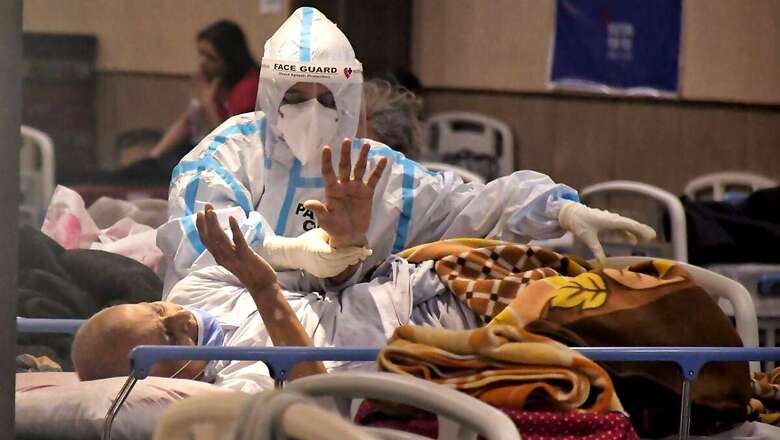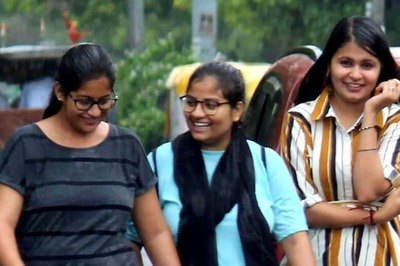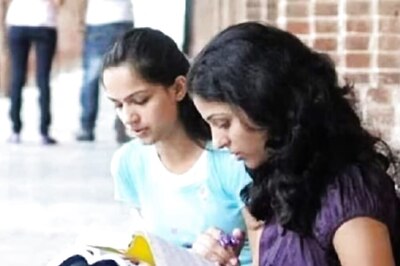
views
The night is dark and ugly, the day is filled with fear and anger, death lurks everywhere, and despair is omnipresent. A society facing such an onslaught has to be assuaged, healed and consoled. Such massive outpouring of emotions cannot be tackled or addressed by the traditional ‘administrative’ system of fiats and announcements. We need to create compassionate systems at all levels—not only in government, but in our offices, in our colonies, and our families.
The hallmark of a compassionate system is that it does not react to criticism with anger. Even angry criticism is taken into its feedback loop and absorbed. It acts positively to criticism, absorbs angry attacks, engages with empathy, and involves people at different levels to ensure execution. Political bickering between the states and the Centre has to end as it does not reflect the working of two compassionate systems. It only creates noise that the system is unable to cope with; this destroys the confidence of the common man and leads to further despair.
Currently, anger is being responded with more anger and is creating a self-perpetuating loop in the society that will not just burn itself down but also all those who represent the system. Constructive letters of criticism need not be responded to as if they are political attacks. Nobody is getting out of this pandemic alive and winning another election if the situation is not resolved.
This includes everyone who represents the system now–politicians, bureaucrats, influencers of all kinds, anchors, actors, editors and columnists. Even medical systems such as hospitals, doctors, nurses or even society’s individual caregivers. A fundamental reboot is needed, across our personal, professional and social selves, to create a compassionate system that will take the anger, fear and despair and direct it towards positive action. This new mental framework is now more important than anything else we do to fight this pandemic. As the virus is shown to be good at mutating and adapting, is humankind as good at adapting and changing or collectively we are worse than a virus?
Let’s Build Solutions
Anger cannot be buried or be left to simmer. It needs to find a vent or be given a vent; otherwise it will burn self and society. For sure, it’s little use empty venting or hitting out indiscriminately at whomsoever we think is responsible for the current state of affairs, but the system’s response has to be positive, action-oriented, and without anger. Government systems are under stress, bureaucrats and politicians are working harder than ever and so are more brittle to attacks. It does not serve any purpose to attack their capability, there will be time enough to discuss that when this is done. If we don’t change this behavior, its destructive momentum will destroy us and our society. The system needs to understand this, and it has to be sensitized daily about the stress and the pressure from the anger and fear surrounding us.
Fear will not dissipate until vaccination is completed and herd immunity sets in, and that is a long time away. By conservative estimates, at least several months, or a year. And who knows the virus will mutate into a variant that resists vaccine, emerging in a new form a couple of years down the line. This change is not temporary, it has to be permanent.
Endlessly debating the preparation or the lack of it, the inadequacy of or the roots of the problem will achieve little now when the virus is running amok and death is closing in. While criticism about the lack of action from the government is a great tool to drive corrective change, this time around it will hurt more than it will help. As the system under stress does not respond well to any criticism it needs support and solution builders, everybody is a critic.
This does not mean passively accepting the lack of change, it means taking action at one’s own level to make the simple things happen, like securing an oxygen cylinder, hospital bed or ventilator for a colleague, friend or even a complete stranger. Logical dispassionate debate of what went wrong can be done later; working on the solution is now more crucial. Blame, shame or criticize if you must, but let’s keep building the compassionate system internally and externally for the society to survive. The generation that survived the Second World War is known as the greatest generation ever for not only surviving endless fighting on many fronts, but for their resilience in surviving years of massive trauma of war.
The pandemic will shape a generation of Indians too. Do we see them emerging as fearful, despairing individuals or as solution-builders who can recreate and rebuild better social, economic and medical systems?
A Bottom-Up Model
The inadequacy of our medical infrastructure is a well-known problem. Allotting funds or building hospitals, primary and tertiary care centers has been debated, discussed and enshrined in policy. Yet it remains on paper, as it involves building physical infrastructure first and then bringing the people to serve. This model for scaling up is not enough; it cannot be the only way to create capacity. There is a need to shift gears, create people capacity first by training millions to take care of those sick, a workforce of trained caregivers using smartphones to learn and deliver the most advanced medical care outside the environment of a hospital.
The negative energy currently coursing through society needs to be rechannelled to build solutions—not from top down but from bottom up. The response time matters for each person; top-down solutions or a command-and-control system will not be able to respond fast enough.
The first part of supply is a logistical issue where a national medical emergency needs to be declared and Army and Air Force supply arms need to be pressed in with the state governments for meeting the requirements. There is a well-laid-out drill in the defence services for meeting the local medical needs, it needs to be pressed into service now. Not from the top down, but it should be allowed to collaborate at the district and cantonment level.
The problem of supply—where it is needed, and how it needs to be distributed—cannot be based on a system of control, requisition, and delivery. It has to be pull or demand based; has to go wherever the problem is. For that to happen, the system needs to give up back-end control; it needs to trust the decisions of those who deal with the problems on the frontlines. The National Task Force of experts needs to realign itself with the task forces at the district level. Some of the states have built a district-level task force; those who have not will have to build it as soon as possible: the Chief Medical Officer, head of the general hospital at the district level, and Deputy Commissioner along with the appropriate civil society representatives need to be part of it.
The social representatives are important as they can push the speed of response. They should be allowed to be vocal as they will be the vent for the anger and the source for the action. Giving up command decisions is crucial even at the ground level as people need to see that their work is being done to build and implement the solution. Enough technology is available in the form of various government apps for vaccination, testing and social sector crowd-sourcing; these can be plugged into the demand-driven supply process.
The need-based decisions will only happen if there is no incentive to hoard or control. For that to happen, there is a need for creating compassion and a sense of purpose in the system that is currently buried under years of criticism, cynicism and ego. Doing that requires that past faults and current mistakes be accepted so that they won’t be repeated, that political, ideological and social differences be kept in abeyance for now, and all of us collectively and individually work for one and all.
Read all the Latest News, Breaking News and Coronavirus News here. Follow us on Facebook, Twitter and Telegram.




















Comments
0 comment